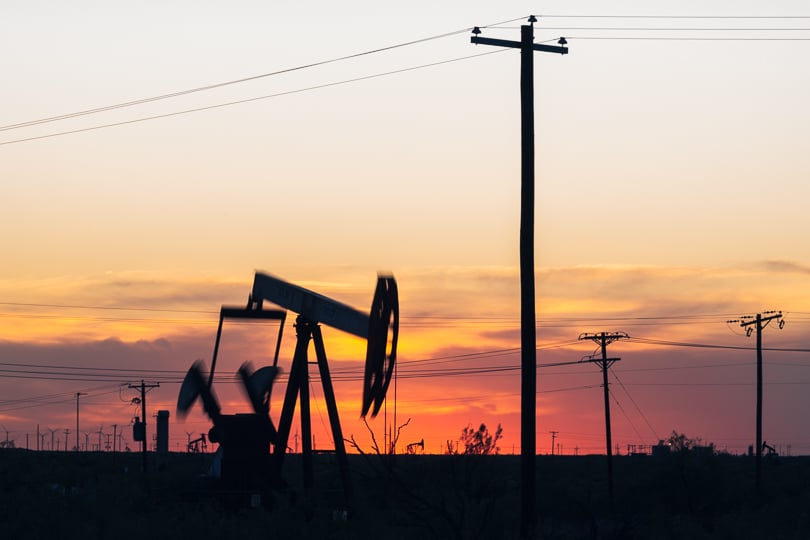By Amy Westervelt, the Guardian. This article by the Guardian is republished here as part of the global journalism collaboration Covering Climate Now.
Scientists working with one of the world’s largest climate research publishers say they’re increasingly alarmed that the company works with the fossil fuel industry to help increase oil and gas drilling, the Guardian can reveal.
Elsevier, a Dutch company behind many renowned peer-reviewed scientific journals, including the Lancet and Global Environmental Change, is also one of the top publishers of books aimed at expanding fossil fuel production.
For more than a decade, the company has supported the energy industry’s efforts to optimize oil and gas extraction. It commissions authors, editors and journal advisory board members who are employees at top oil firms. Elsevier also markets some of its research portals and data services directly to the oil and gas industry to help “increase the odds of exploration success.”
Several former and current employees say that for the past year, dozens of workers have spoken out internally and at company-wide town halls to urge Elsevier to reconsider its relationship with the fossil fuel industry.
“When I first started, I heard a lot about the company’s climate commitments,” said a former Elsevier journal editor who agreed to speak on condition of anonymity. “Eventually I just realized it was all marketing, which is really upsetting because Elsevier has published all the research it needs to know exactly what to do if it wants to make a meaningful difference.”
What makes Elsevier’s ties to the fossil fuel industry particularly alarming to its critics is that it is one of a handful of companies that publish peer-reviewed climate research. Scientists and academics say they’re concerned that Elsevier’s conflicting business interests risk undermining their work.
Julia Steinberger, a social ecologist and ecological economist at the Université de Lausanne who has published studies in several Elsevier journals, said she was shocked to hear that the company took an active role in expanding fossil fuel extraction.
“Elsevier is the publisher of some of the most important journals in the environmental space,” she said. “They cannot claim ignorance of the facts of climate change and the urgent necessity to move away from fossil fuels.”
She added: “Their business model seems to be to profit from publishing climate and energy science, while disregarding the most basic fact of climate action: the urgent need to move away from fossil fuels.”
Elsevier and its parent company, RELX, say they are committed to supporting the fossil fuel industry as it transitions toward clean energy. And while Elsevier has emerged as an industry leader with its own climate pledges, a spokesperson for the company said they are not prepared to draw a line between the transition away from fossil fuels and the expansion of oil and gas extraction. She voiced concern about publishers boycotting or “canceling” oil and gas firms.
“We recognize that we are imperfect and we have to do more, but that shouldn’t negate all of the amazing work we have done over the past 15 years,” Márcia Balisciano, founding global head of corporate responsibility at RELX, told the Guardian.
Of the more than 2,000 scholarly journals that Elsevier publishes, only seven are specific to fossil fuel extraction (14 if you count special publications and subsidiaries). Those journals include Upstream Oil and Gas Technology, the editor-in-chief of which works for Shell, and Unconventional Resources, which is edited by a Chevron researcher. It also runs a subsidiary book publisher, Gulf Publishing, which includes titles such as The Shale Oil and Gas Handbook and Strategies for Optimizing Petroleum Exploration.

Elsevier also provides consultancy services to corporate clients. For the past 12 years, it has marketed a tool called Geofacets to fossil fuel companies. Geofacets combines thousands of maps and studies to make it easier to find and access oil and gas reserves, in addition to locations for wind farms or carbon storage facilities.
The company claims the tool cuts research time by 50 percent and helps identify “riskier, more remote areas that had previously been inaccessible.”
Top climate scientists, including those published in Elsevier’s own journals, however, say just the opposite must happen in order to avert a climate catastrophe. Limiting warming to 1.5 degrees Celsius or less requires a worldwide decrease in fossil fuel production with more than 80 percent of all proven reserves left in the ground.
“We will not comment on the practices of individual companies, but any actions actively supporting the expansion of fossil fuel development are indeed inconsistent” with the United Nations’ sustainable development goals, said Sherri Aldis, acting deputy director for the UN department of global communications.
RELX is an astoundingly profitable company, with annual revenues topping $9.8 billion, about a third of which are brought in by Elsevier. Balisciano emphasizes that fossil fuel content represents less than 1 percent of Elsevier’s publishing revenue, and less than half of Geofacets’ revenue, which itself represents only about 2 percent of Elsevier’s earnings.
The ESRI Petroleum GIS Conference is coming May 15 – 16 in Houston! Visit Booth #427 to learn how the Geofacets plug-in for ArcGIS seamlessly empowers your workflow with the power of Geofacets – the cutting-edge information solution for geoscientists.
— Geofacets (@Geofacets) May 14, 2019
RELX and Elsevier say the bulk of their work supports and enables an energy transition via publications centered on clean energy. “We don’t want to draw a binary and we don’t think you can just flip a switch, but we have been reducing our involvement with fossil fuel activities while increasing the amount of research we publish on climate and clean energy,” said Esra Erkal, executive vice president of communications at Elsevier.
Elsevier is not alone in navigating relationships with both climate researchers and fossil fuel executives. Multiple other publishers of peer-reviewed climate research have signed on to the UN’s Sustainable Development Goals Publishers Compact while also partnering with the oil and gas industry in various ways.
The UK-based publisher Taylor & Francis, for example, signed the UN pledge and released its own net-zero commitments while also touting its publishing partnership with “industry leader” ExxonMobil, the oil company most linked to obstructionism on climate in the public consciousness. Another top climate publisher, Wiley, also signed on to the sustainability compact while publishing multiple books and journals aimed at helping the industry find and drill for more oil and gas.
“It’s problematic,” said Dr. Kimberly Nicholas, associate professor of sustainability science at Lund University in Sweden, noting that while corporate greenwashing is rampant across multiple industries, the publishers of peer-reviewed climate research have a unique responsibility.
“If the same publisher putting out the papers that show definitively we can’t burn any more fossil fuels and stay within this carbon budget is also helping the fossil fuel industry do just that, what does that do to the whole premise of validity around the climate research? That is what’s deeply concerning about these conflicts,” she said.
Ben Franta, a researcher at Stanford University who has also published studies in Elsevier journals, notes that the publisher’s relationship with oil firms is indicative of just how entwined that industry is with so many other aspects of society.
“This all happens without the broader public knowing, and it operates to entrench the industry,” he said. “To effect a rapid replacement of fossil fuels, I believe these entanglements will need to be exposed and reformed.”
Elsevier, for its part, emphasizes the role of editorial independence. “We wouldn’t want to tell journal editors what they can and can’t publish,” Balisciano said. However, such conflicts often place researchers in a tough position to navigate.
James Dyke, assistant director of the Global Systems Institute at the University of Exeter, was surprised that Elsevier would be working to contradict climate researchers in this way.
“It’s hard to believe that a company that publishes research about the dangers of the climate and ecological crises is the very same company that actively works with oil and gas companies to extract more fossil fuels, which drags us towards disaster,” he said.
Subscribe to our newsletter
Stay up to date with DeSmog news and alerts







